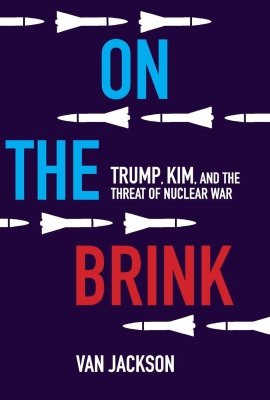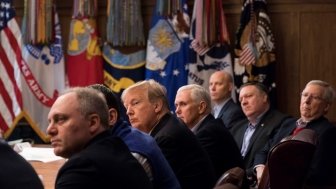Professional Affiliation
Senior Lecturer in International Relations, Victoria University of Wellington
Expert Bio
Dr. Van Jackson is an American political scientist, strategist, and media commentator specializing in Asian security and defense affairs. He is a senior lecturer in international relations at Victoria University of Wellington, as well as the Defence & Strategy Fellow at the Centre for Strategic Studies in Wellington, New Zealand. Van's first book was Rival Reputations: Coercion and Credibility in US-North Korea Relations (Cambridge University Press, 2016). His latest book is On the Brink: Trump, Kim and the Threat of Nuclear War (Cambridge University Press, 2018). Van has testified before the House Committee on Foreign Affairs, Subcommittee on Asia and the Pacific, and is a frequent commentator in popular media and policy outlets. He was previously a Council on Foreign Relations International Affairs Fellow (2014-15). From 2009 to 2014, Van held positions in the Office of the Secretary of Defense (OSD) as a strategist and policy adviser focused on the Asia-Pacific, senior country director for Korea, and working group chair of the U.S.–Republic of Korea Extended Deterrence Policy Committee. He is the recipient of multiple awards in OSD, including the Exceptional Civilian Service Medal."
Wilson Center Project
The Contest for Order in the Asia-Pacific: National Strategies and Regional Alternative Futures
Project Summary
What will govern predictable and peaceable interaction among states in the Asia-Pacific? The answer depends on the character of the region’s increasingly contested order. China’s rise has led to what some call a “dual-hierarchical” order: an uneasy pattern whereby China became central to the region’s economic prosperity while the United States remained central to the region’s security. But Asia’s “dual hierarchy” is coming under strain. This project argues that no singular vision for regional order is likely to be fully realized. Every serious attempt to get beyond international anarchy and forge generally accepted rules and norms is heavily contested within the region. States are pursuing multiple incompatible futures simultaneously—and none are satisfactory to China, the United States, and Asia’s secondary states all at once. This all but assures that political friction, mistrust, and security competition will become a more prominent feature of regional relations.
Major Publications
Insight & Analysis by Van Jackson
- Book
- Conflict Resolution and Peacebuilding
On the Brink: Trump, Kim, and the Threat of Nuclear War

- Video
- Nuclear Proliferation/Non-proliferation
Did the U.S. and North Korea Come Close to Nuclear War?

- Past event
- Nuclear Weapons
Book Launch: 'On the Brink: Trump, Kim, and the Threat of Nuclear War'

- Blog post
- Modern Korean History
The EC-121 Shoot Down and North Korea’s Coercive Theory of Victory



